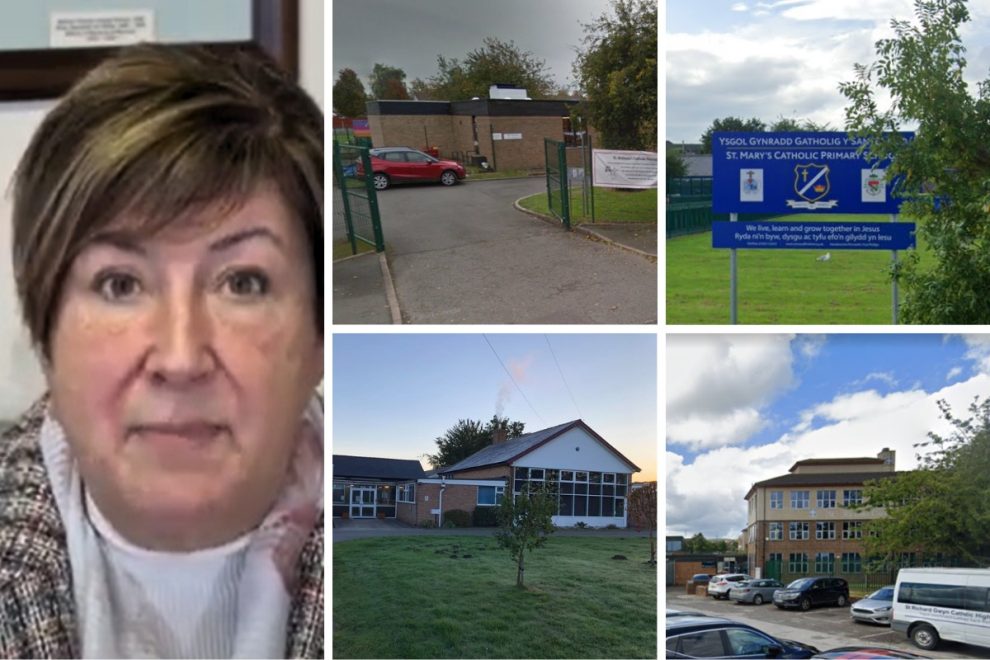THE DIOCESE of Wrexham has refuted claims that a meeting last week over proposals for a catholic ‘super-school’ saw discussion of the consultation banned on church grounds.
A consultation is currently underway into joint plans by Flintshire County Council and the Diocese of Wrexham to close four schools – St Anthony’s Catholic Primary School in Saltney, St David’s Catholic Primary in Mold, St Mary’s Catholic Primary in Flint and St Richard Gwyn Catholic High School.
In their place will be built a £55.5 million all-through school for pupils aged 3-18. The consultation, which is currently open to the public on Flintshire County Council’s website, will close on July 18.
Last week a meeting took place for the council and the Diocese to take representations from school officials and governors from St David’s and St Anthony’s on the plans, answer any questions and raise any concerns.
Afterwards a source – who asked not to be named – claimed that in the meeting they were told that discussion of the consultation had been banned on church property.
“One particularly important question – why the Bishop had banned discussions of the consultation on church property – remained unanswered,” the source said. “This raises concerns about transparency and open communication throughout this process.
“Both schools were only allocated eight minutes to ask questions and were restricted to submitting them via a text box. This did not allow for meaningful dialogue.”
These claims however have been flatly denied by the Diocese, who say they want an open and transparent consultation to take place.
“To say discussion of the process is banned on church grounds is incorrect,” said Wendy White, Director of Education for the Diocese of Wrexham.
“Bishop Peter Brignall stated that during sacred liturgy, it is inappropriate to conduct political discussions. This is to protect the dignity of liturgy in general.
“Regarding the schools consultation, the Bishop has asked priests to ensure that the information regarding where parishioners can take part is clearly available in all churches. He has stated he wants to ensure ‘transparency and fairness’ as laid out in the Statutory Process.
“We learned from our first meeting to announce the plans that more time was needed for stakeholders to ask questions so this time we were able to give more question time. Flintshire County Council assured all parties that every question they wished to ask could be sent in to a dedicated email address and would be responded to. It is not true to suggest that only written questions could be asked. In fact, all but one question was actually asked verbally.”
The source also criticised the suggestion by the Diocese in the meeting that the new school would offer ‘excellent leadership’.
“The Diocese appeared to focus heavily on the idea of a new school offering “excellent leadership”,” they said. “However, there has been no clear demonstration of the Diocese’s ability to deliver this, as evidenced by continuing leadership challenges at the Diocese-run Christ the Word School in Denbighshire and at St Richard Gwyn.
“A new building will not resolve current leadership issues, and serious questions remain about how excellent leadership would be recruited and sustained within the timeframes proposed.
But Mrs White said making comparisons with other authorities was unfair.
“In every local authority and Diocese there are always a variety of schools that perform very well, positively or require support.
“This is also true of all styles of school – maintained or voluntary aided, primary, secondary or all-through schools. Comparing a potential new school to a particular school in a different authority and with different challenges and circumstances is inappropriate and irrelevant.
“Should the new school in Flintshire be approved, the process of leadership, governance, policies and practises will take place over at least two years to ensure detailed preparation for the staff and pupils before they join the school. This may not have always been the case elsewhere.”
Another complaint to arise from the meeting according to the source was school capacity in Mold. St David’s School was selected for closure due to a pattern of long-term decline in pupil numbers. But according to the source pupil registrations at St David’s for next year have risen.
“St David’s has seen continued enrolment during the consultation period, with numbers in reception having increased from last year and playgroup flourishing,” they said. “This trend shows a clear vote of confidence from local families and contradicts the suggestion that the school is in long-term decline.
“In summary, the meeting and consultation process have failed to present an accurate or complete picture of the situation and risk causing long-term harm to affected school communities.”
A spokesperson for Flintshire County Council said: “The nursery and reception admission numbers as at today for St David’s for September 2025 are not higher than the September 2024 applications.
“We stated in the consultation document that these statistics reflect a decreasing number at St David’s overall and significant surplus places compared to capacity. As of today this situation remains the same for St David’s.
“We can also confirm that the school admission applications for St David’s this September have currently not reached its published admission number of 20.”














